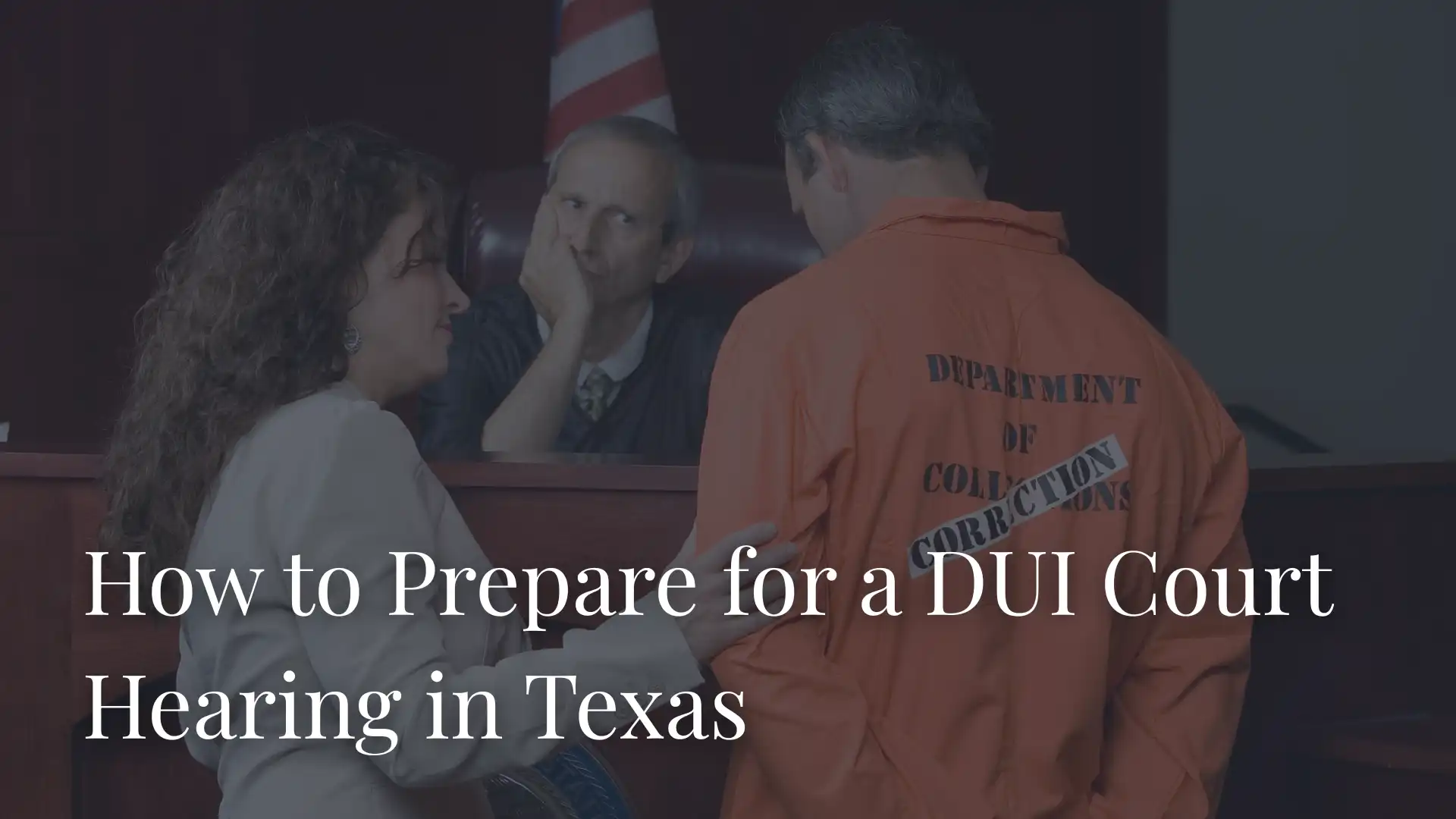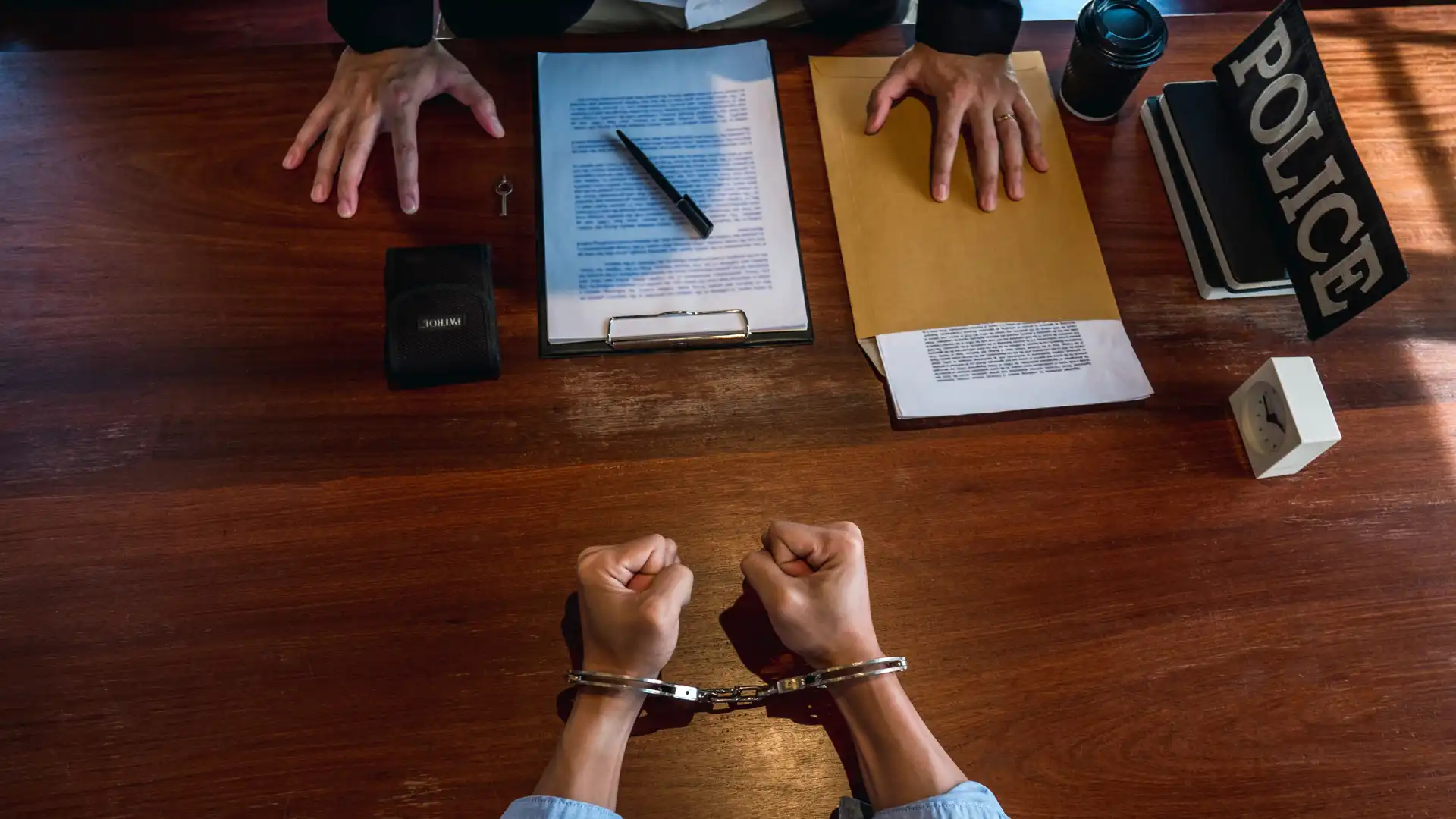
You’ll most likely need to attend at least one court hearing after a drunk driving case, so it’s essential to understand how to prepare for a DUI court hearing. Knowing what to expect and how to present yourself can significantly affect the outcome. These hearings are pivotal to your Dallas drunk driving case, so it’s crucial to prepare appropriately. Here’s what you need to know and how to prepare for a DUI court hearing in Texas.
Understand the Charges and Penalties You’re Facing
The official term for drunk driving in Texas is “DWI,” or “driving while intoxicated.” Typically, the authorities file DWI charges after an officer pulls you over because they saw you driving erratically. If they take you into custody, they can test your blood or breath for signs of alcohol or other drugs, and later, you’ll need to know what to expect at a DUI court hearing, where that test could become key evidence.
A blood alcohol concentration (BAC) of 0.08 percent or higher means you’re automatically considered too intoxicated to drive. However, a BAC of 0.08 percent or higher isn’t strictly necessary for a DWI charge if the authorities have other evidence.
In Texas, DWI is usually a Class B misdemeanor for a first offense. The penalties for Texas Class B misdemeanors include up to 180 days in jail and a fine of up to $2,000. You could also lose your driver’s license due to a DWI conviction or have to attend mandatory alcohol counseling. Depending on your situation, you might also lose your job, have trouble finding housing, or face social stigma due to your conviction.
Hire an Experienced DUI Defense Attorney
Do not risk the potential consequences of a DWI conviction by not hiring a lawyer. Even if you know you’re innocent, proving it and avoiding a conviction is a lot of work and requires careful planning. An experienced DUI defense attorney can help you by:
- Challenging the traffic stop if the officer didn’t have a legal reason to pull you over
- Examining the evidence for errors in police reports, videos, and chemical test results
- Filing motions to suppress any evidence obtained illegally or without proper procedure
- Questioning the accuracy of tests by checking for flaws in breathalyzer or blood testing methods
- Locating and interviewing witnesses who can back up your side of the story
- Negotiating with the prosecution to reduce your charges or penalties when possible
- Preparing you for court so you know what to expect and how to act during each hearing
- Building a personalized defense that fits your case’s unique facts and circumstances
- Protecting your Constitutional rights at every stage of the investigation and trial
Know What to Expect at Your First Hearing (Arraignment)
The first (possibly only, depending on your situation) court hearing you must attend in a DUI case is your arraignment. Here’s what happens during that hearing:
- Appearance before the judge. You’ll stand before a judge in person or by video, usually within a few days of your arrest.
- Hearing the formal charges. The judge will read the official charge that prosecutors have filed against you.
- Reading of your rights. The judge will remind you of your Constitutional rights, including the right to remain silent and have a lawyer.
- Entering a plea. You’ll be asked to plead guilty, not guilty, or no contest. Most people plead not guilty at this stage. Don’t plead guilty without first talking to a lawyer, as there may be other ways to avoid the worst outcomes in your case.
- Discussing legal representation. If you don’t already have a lawyer, the court will ask if you plan to hire one or need a court-appointed attorney.
- Setting bail conditions. Depending on the prosecution’s stance and your lawyer’s abilities, the judge may review or change the bail amount and set conditions for your release.
- Scheduling the next court date. The court will set dates for future hearings, such as pretrial motions or trial.
- Addressing other conditions. The judge might order you to install an ignition interlock device, avoid alcohol, or attend alcohol counseling while your case is pending.
Prepare for Possible Outcomes
While you don’t want to assume the worst in a DUI case, you should keep all possible endings in mind. That way, you can make informed decisions and prepare for what’s coming next. The outcomes in a DUI case include:
Case Dismissal
If the evidence is weak or the state violated your rights, the judge may dismiss your case entirely. A dismissal ends your case with no conviction, though the arrest is still on your record.
Not Guilty Verdict
If your case goes to trial and the jury finds you not guilty, you’re cleared of the charges. There are no penalties or criminal records in this outcome.
Guilty Verdict
A guilty verdict means the court found enough evidence to convict you. You’ll face sentencing after the trial concludes, including fines, jail time, or probation.
Plea Bargain
You might agree to plead guilty or no contest to a lesser charge. In exchange, you could avoid jail time or reduce your other penalties.
Deferred Adjudication
Sometimes, the court may delay a final conviction and sentence you to a pretrial diversion program. This outcome is more likely if it’s your first DUI and you have little or no criminal history. The court may dismiss your case without a conviction if you complete probation and the diversion program successfully.
Gather Character References or Supporting Documents

Character references can be persuasive to a judge or jury, particularly during sentencing or a closely contested trial. For instance, accounts of your community ties and lack of criminal history can convince a judge to give you a lighter sentence.
Likewise, your medical records and other supporting documents may be essential evidence in your defense. For example, specific illnesses can affect breathalyzer or field sobriety tests, and your medical history can show that you have one of these conditions.
Some character references and supporting documents to collect for your defense include:
- Letters from family, friends, or community members who can speak to your good behavior
- Proof of employment
- Completion certificates from alcohol education or treatment programs
- Clean driving record
- Proof of community service or volunteer work
- School transcripts or enrollment documents
- Letters from religious or civic leaders
- Documents showing financial hardship or family responsibilities
Our Dallas DUI defense attorneys can guide and help you through any court hearings and fight on your behalf for the best possible outcome. Call 214-949-4117 or complete our contact form for a free consultation.





